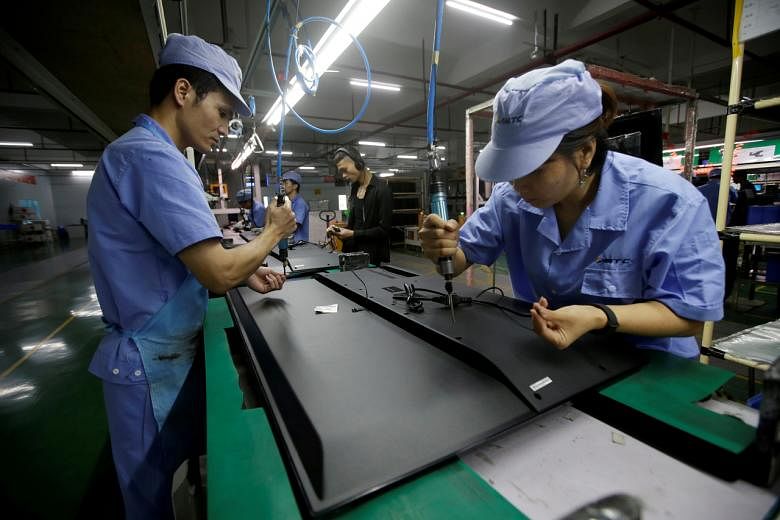SHANGHAI (REUTERS) - As the United States-China trade war drags into its 16th month and continues to disrupt supply chains, more than one-quarter of multinational firms have not made contingency plans, according to a survey from a subsidiary of courier giant DHL.
The survey by DHL Resilience360, a supply chain risk management software platform under Deutsche Post's courier unit, included 267 anonymous responses from supply chain executives across industries including healthcare, automotive and consumer.
Over half of respondents were from companies with annual revenue of over one billion yuan (S$195 million) and most were from the United States and European Union, the survey showed.
Of the respondents, 48 per cent from the engineering and manufacturing industry and 40 per cent from the car mobility sector reported that they had no contingency plans at all, even though both fields have been heavily targeted by both countries in the trade war.
"We're now dealing with such a new frontier that most supply chain professionals have not encountered this before and it's so new that I think a lot of people are struggling to even understand what they can do to deal with it," said Ms Shehrina Kamal, product director for risk monitoring at DHL Resilience360.
Of those that had decided against relocating or shifting production out of China, some said they were unaffected by the trade war. However, 43 per cent said long-established connections with Chinese factories and suppliers as well as cost and time were among reasons for staying put. Just 8 per cent of respondents said they expected tariffs to eventually be removed.
Of the 12 per cent of respondents that have moved manufacturing out of China, some said they faced headaches such as a lack of skilled labour, heavy port congestion and maintaining supplier quality, the survey showed. India and Vietnam were among the most popular alternative locations.
The US and China have imposed tariffs on billions of dollars worth of each other's goods since July 2018 as trade friction between the world's two biggest economies worsened despite several rounds of negotiation. Industries that have been hit so far include car, retail and technology.
A "phase one" deal that would cool trade tension and roll back some of the tariffs had been expected in November but has yet to be agreed.
The disruption has led other Asian countries to compete for investment from companies moving supply chains to escape higher tariffs, with governments offering tax breaks, promising to slash red tape and sending trade missions.
Meanwhile, news website Axios reported that a trade deal between the US and China is now "stalled because of Hong Kong legislation".
Citing a source close to US President Donald Trump's negotiating team, the report said that the deal was stalled also because time was needed to allow Chinese President Xi Jinping's domestic politics to calm.
China's Foreign Ministry said last week that legislation signed by Mr Trump last Wednesday backing protesters in Hong Kong was a serious interference in Chinese affairs.
The Human Rights and Democracy Act authorises the US government to impose sanctions, including asset freezes and visa bans against officials who abuse human rights in Hong Kong. It also requires an annual review to assess if Hong Kong has sufficient autonomy to justify its special treatment from the US.

